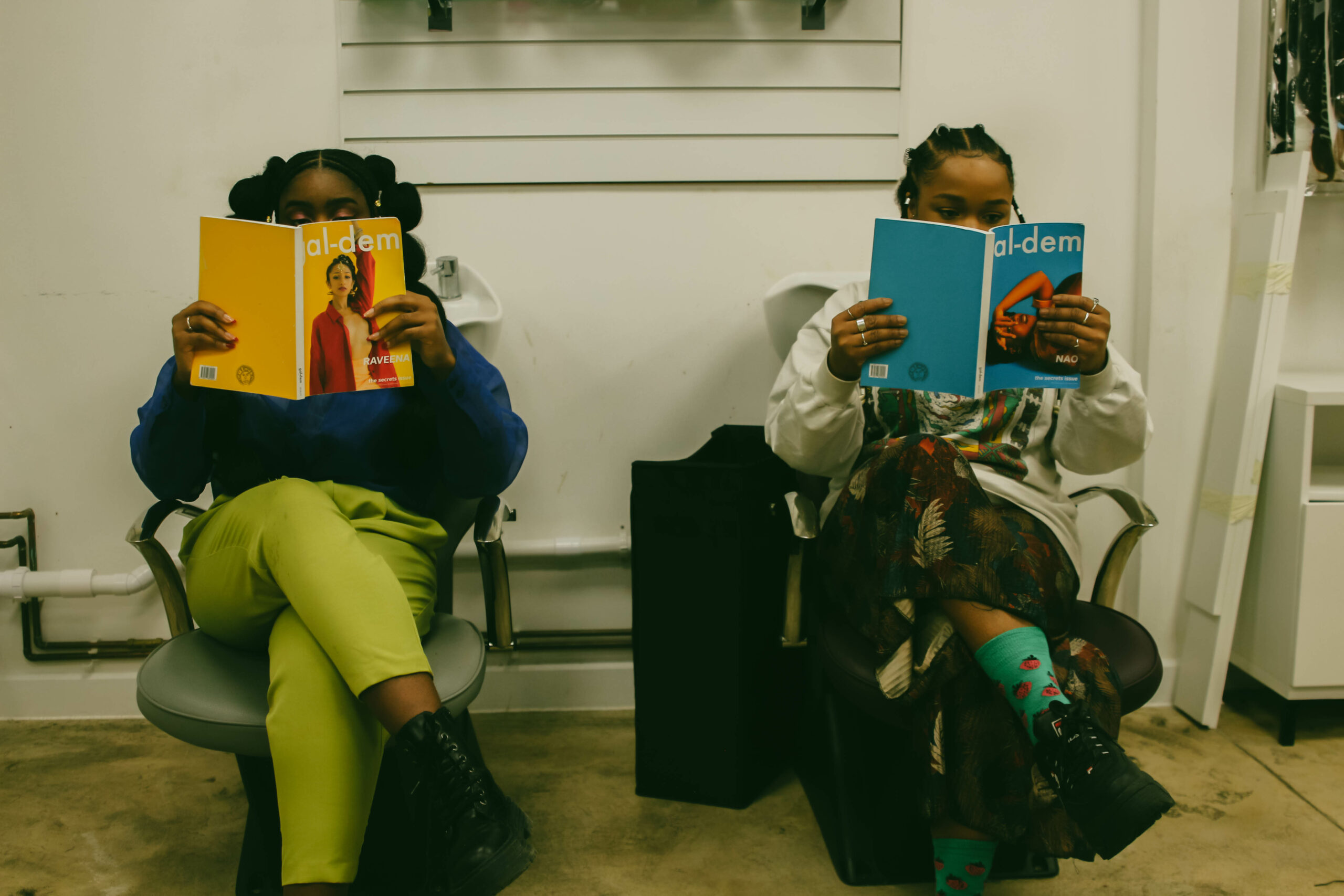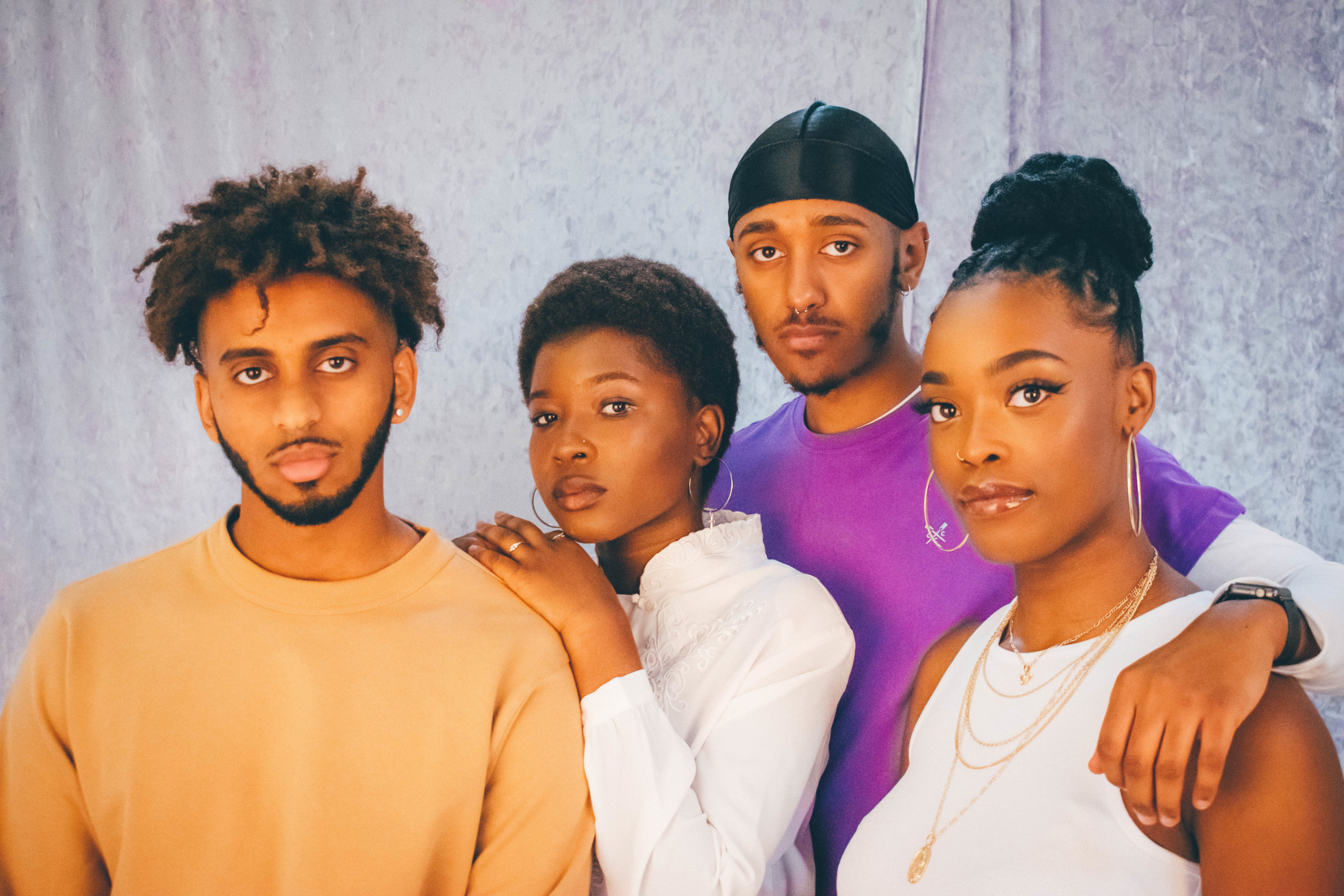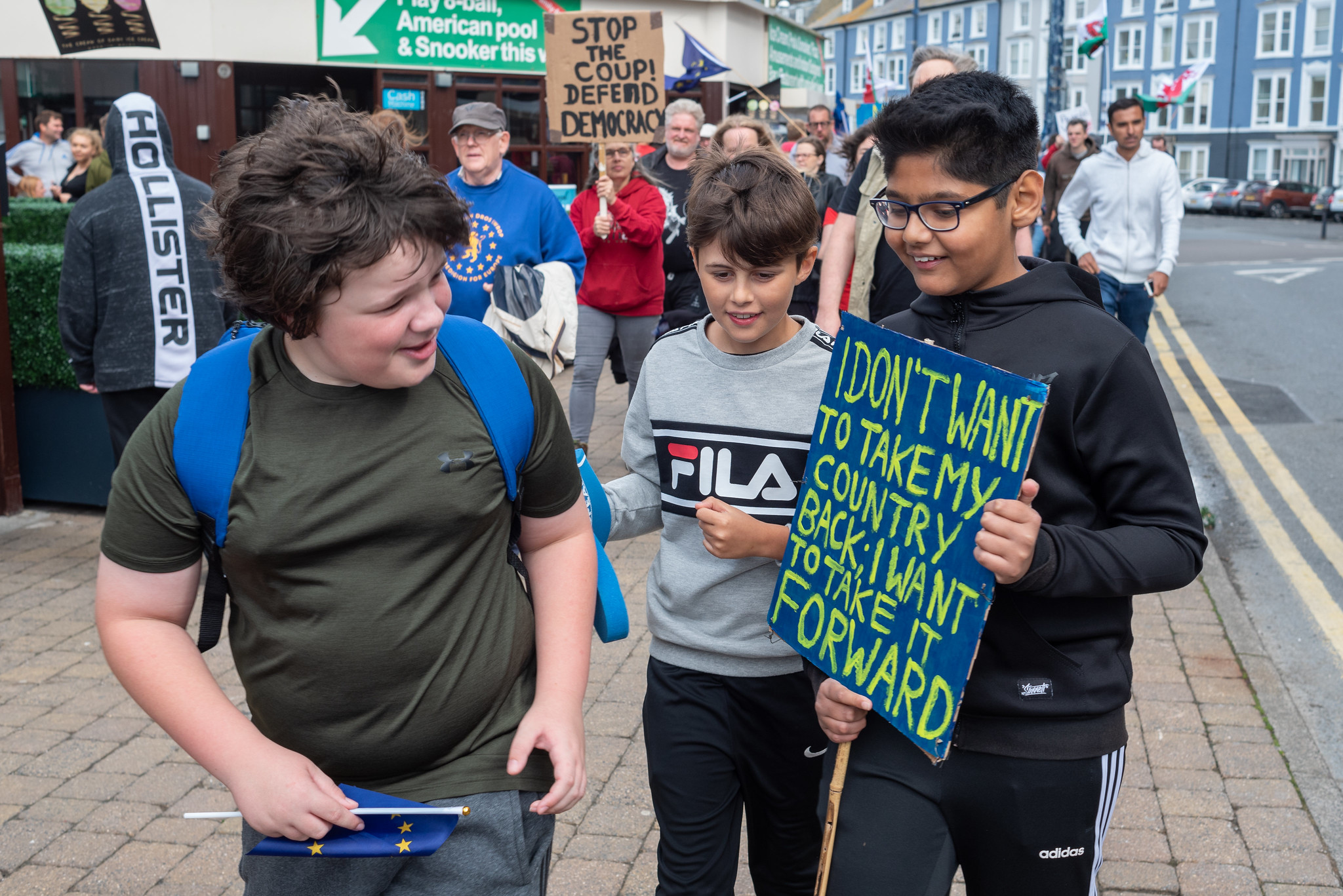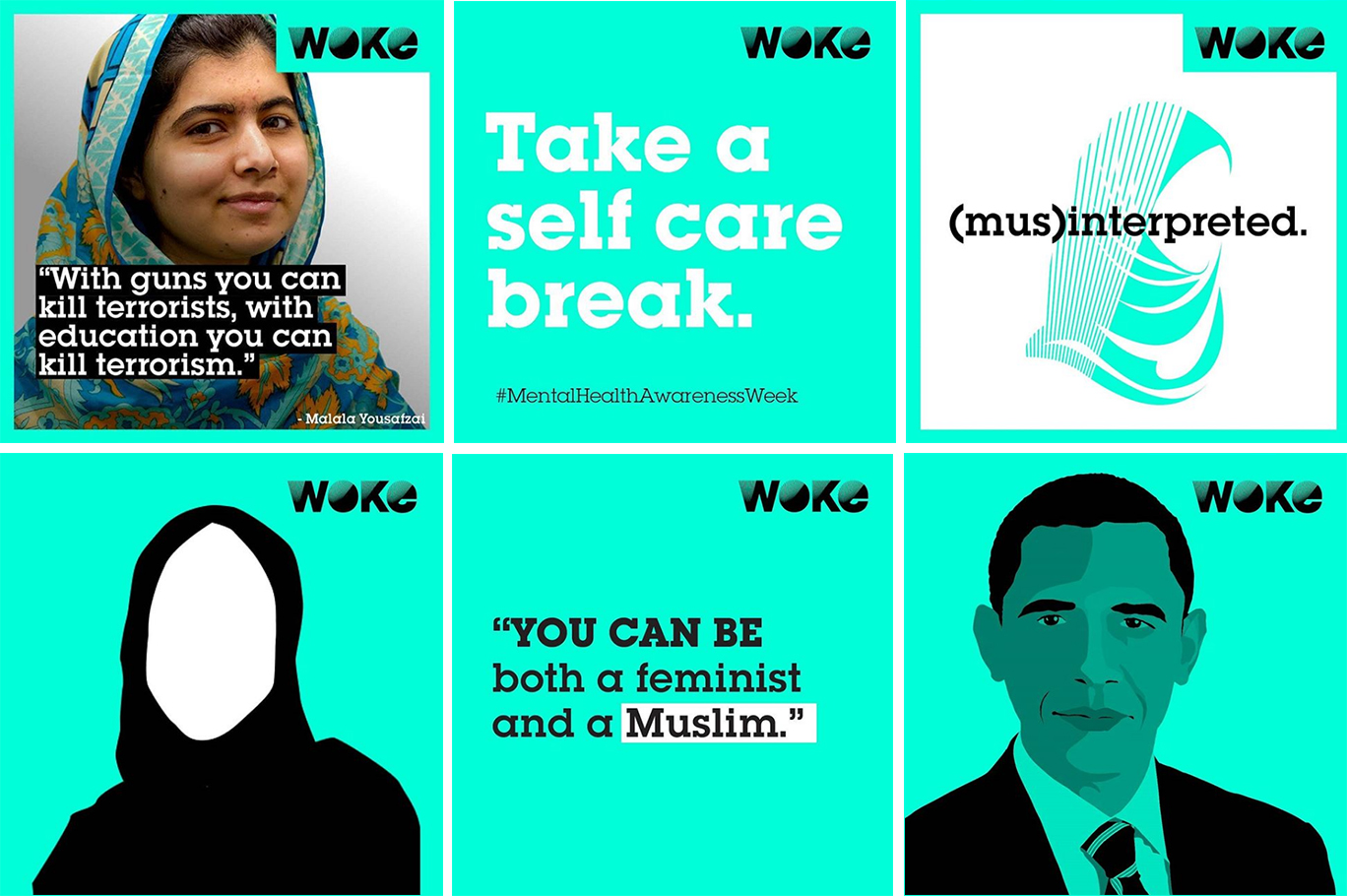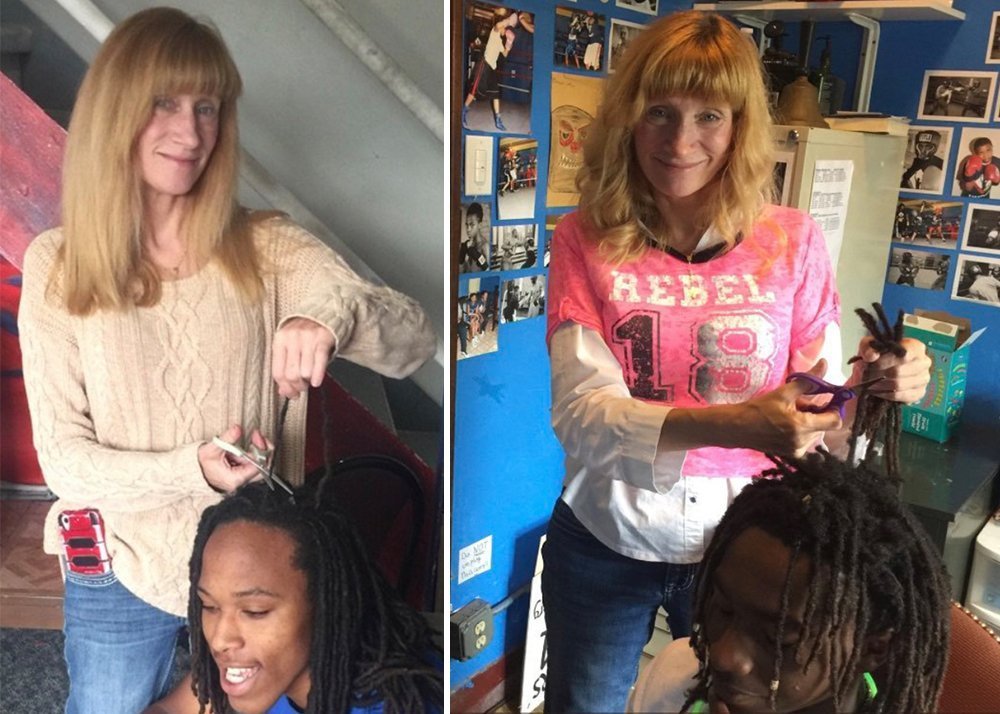
Photo via @crushersclub’s Twitter
It’s a cursed image. A white woman flashes a demented grin as she shears a black man’s locs off with a pair of purple scissors. In another, that haunted, beaming face appears again – this time the handle of her scissors as white as the privilege she’s exhibiting as she robs another young black man of his hair in the name of setting him free from a life of crime, one loc at a time. “It’s symbolic of change and their desire for a better life,” the caption reads.
The woman in question is Sally Hazelgrove, the founder of the now-infamous Crusher Club. The youth organisation is a new recipient of a $200,000 (£163,000) investment by Jay Z and NFL’s social activism partnership. When the images from 2016 resurfaced they faced scrutiny. The casual link made between natural hair and diminished life prospects is deeply racist and resulted in widespread outrage as users took to Twitter to condemn the founder, as well as Jay Z and his association and support of the organisation. While natural hair remains a hindrance in workplaces marred by systematic racism, this crudely simplified response by a white-owned charity proves problematic at the very least.
Crushers Club, founded in 2004, positions itself as a community-driven project, one which combats gang culture through supporting vulnerable youth through programmes such as boxing, music and mentoring. While they undoubtedly have managed to help many struggling young people, in light of this incident it is hard not to look beneath the charity’s veneer of parity and ambiguous hyperbole (Restore the path. Rebuild the streets) and question the cost this supposed restoration has had on the racial identities of those they are helping.
Sally was quick to dispel any suggestion that the act of cutting off the hair was against the participants’ will, nor that it was racist. She attempted to address this concern by mentioning her biracial sons – crassly playing the I have black friends, I’m not a racist card. But as the likes of Rachel Dolezal have proved, having biracial sons does not make you an ally nor does it give you any authority to speak about a culture that is inherently not yours.
“For Sally and other white people who think black people wearing locs is as inconsequential as wearing a particular type of shoe, they erase centuries of culture”
Working at a festival in South London, I was asked by a customer to get the attention of another colleague also working behind the bar. When I asked the customer to describe her for me, she characterised her as the “one wearing the dreads”. This was not offensive or racist to me, but it perfectly captured why organisations such as Crusher Club thought it acceptable to cut off locs in the first place. Locs are not an accessory one can wear. For Sally and other white people who think black people wearing locs is as inconsequential as wearing a particular type of shoe, they erase centuries of culture. By stigmatising a style with such history and advocating for locs to be cut they sever the ties between black people and their own culture.
Choosing to keep your natural hair as a black or mixed-race person is challenging, particularly when entering the workplace. California has paved the way in terms of protecting an individual’s rights to have their natural hair. In February, Jay-Z’s native city closely followed – the New York City Commission on Human Rights added guidelines to protect individuals from hair discrimination in schools, work, and public spaces. The proposal fell under racial discrimination laws and specified the right to wear your “natural hair, treated or untreated hairstyles such as locs, cornrows, twists, braids, Bantu knots, fades, Afros, and/or the right to keep hair in an uncut or untrimmed state”.
This arrival of this trailblazing law meant that people could finally challenge the times when they’ve been harassed, profiled, demoted and maligned because of their hair. The New York Times wrote that penalties could reach up to $250,000.
My mother has grown her locs for 10 years and it is a slow, methodical process, one which I have watched intently, and for which I have great respect. To see the image of Sally hacking off that young man’s locs for me andmany others was heartbreaking. His conformity in the process did little to soften the image and what it represented for me and many others. My mother has managed to pursue a career in psychotherapy and has got to a point only recently where she does not deem her hair to be an issue for her employer, but this belief is in part due to her built up experience as opposed to trust in a lack of bias. This sad truth reveals the challenge facing black and mixed-raced people, however, it cannot be answered by simply adopting Western hairstyles.
Jay Z’s betrayal of the black community that gave him his success and riches is made even worse by the fact that he himself now sports locs. Do you have to be a billionaire to earn the right to wear them? Add that to the irony in setting up social activism with a league that has denied Colin Kaepernick work due to his peaceful protest of kneeling during the anthem before each game is shocking. Colin has shown integrity and loyalty to the black community even when faced with unemployment for the infinite future: “I am not going to stand up to show pride in a flag for a country that oppresses black people and people of colour,” he told NFL Media. In creating an alliance with the NFL and supporting a charity whose approach is to suppress the blackness of the individuals they are supporting Jay Z has shown a clear disregard for a culture he supposedly represents, and it is laughable and hateful in equal measure.
“Jay Z’s betrayal of the black community that gave him his success and riches is made even worse by the fact that he himself now sports locs. Do you have to be a billionaire to earn the right to wear them?”
Although the act of cutting natural hair is inescapably racist, it is crucial not to remove any agency from the men who wished to participate in the programme. One in particular, Kobe Richardson, was quick to come to the founder’s aid. However, the fact that this story is not an isolated incident makes his attempted validation of her behaviour of little weight. The policing of black bodies extends to natural hair and this is a huge issue, one which has come to light in various news stories emerging out of the U.S in recent years. Teenager Andrew Johnson had his locs cut by a referee before a wrestling match. In Tennessee, they introduced new rules requiring a license to braid hair, which is effectively a tax on black people. Then, there was the abhorrent case of the locked-up of black hair products in Walmart stores. All of which sadly subject people like Kobe to a sea of continual discrimination.
Conforming to a society that is racist is not an easy fix – it is a choice which cannot be undertaken lightly and in Sally stating in an interview that she “regrets not having the forethought” confirms a lack of judgement and ignorance on her part. Natural hair culture is something that informs people’s identity and outlook and to remove it is a political act one which can only be initiated by the individual, not a white counterpart. It is important to not only address this criticism to Sally but Jay Z whose evident negligence of his culture is doing nothing to impede his career.

